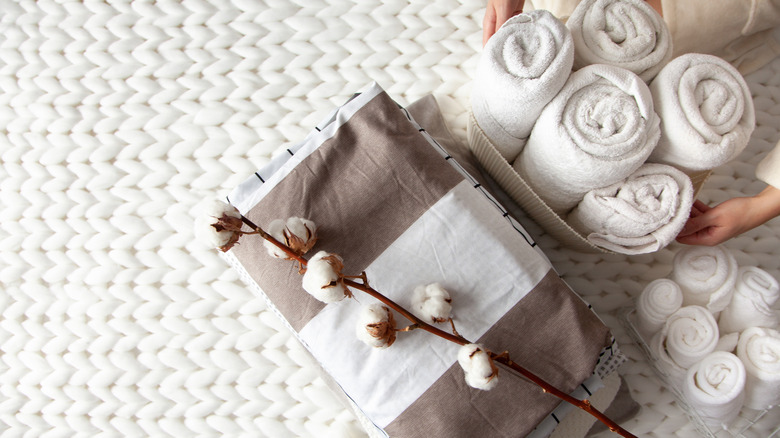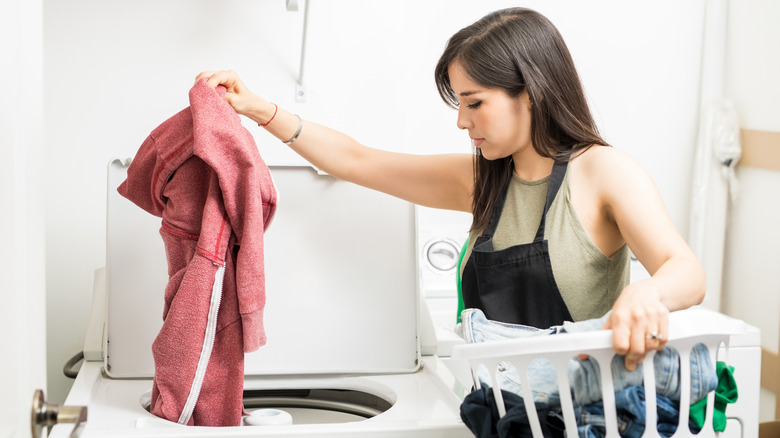You've Been Washing Your Towels Wrong All Along
Nowadays, towels can run you anywhere between $50 and $200 or more. When you're simply tossing them into the washing machine with the rest of the colors, your towels may rapidly decrease in longevity — and have mold, dust and yeast particles teeming between the fibers. Plus, your towels may need a deep clean more often than you think.
Tide & Downy principal scientist Mary Johnson tells Real Simple that your towel should only touch your skin three or four times before it heads to the washing machine. Seem excessive? Unfortunately, the outlet notes, after a while, your towel can become a breeding ground for molecules such as mold, yeast and even E. Coli. Essentially, those extra trips to the laundry machine are worth it. "Our body constantly produces sweat, salt, sebum, and skin cells, and much of this can be transferred to towels," she adds.
All of these — along with the various forms of bacteria — can stick to your skin after you wash off. The outlet explains that using these dirty towels — even if they've been dried properly on a rack — may lead to skin issues such as inflammation or acne. Simply running them through the washing machine won't kill the bacteria properly, especially if someone in your home has gotten sick. To properly disinfect your fabrics, you'll need a few more ingredients than classic detergent.
Always separate your towels from the rest of your laundry
If you've been tossing your towels in with the rest of your clothes and washing on cold or cool, it's time to switch things up. These fabrics should always go through a hot or warm spin cycle, preferably on their own. Real Simple notes that white towels require hot water while colored towels need warm temperatures. For colorful towels, use your detergent and color-safe bleach to keep them bright and fresh. Obviously, white towels work well with non-chlorine bleach.
However, if you've noticed the absorbency of your towels decreasing, it's time to bring in extra tools. The Spruce explains that too much fabric softener can often be to blame for this issue because it coats each of the fibers. From here, the fibers repel water, rendering them less and less effective after your shower. The outlet suggests running a hot water cycle for your towels and adding a cup of white vinegar to the rinse cycle to cut through the coating. 100% ring-spun or combed cotton holds up the best and absorbs the most moisture, The Spruce adds.
It's also important to wash your towels alone so that there's enough room in the machine to effectively lift and remove build-up, stains and germs. That's why making two separate loads for your various colors of towels can be vital to their lifespan and overall drying abilities.
With the right tools and information, you can protect your skin from gross build-up while saving yourself some cash in the long run.

